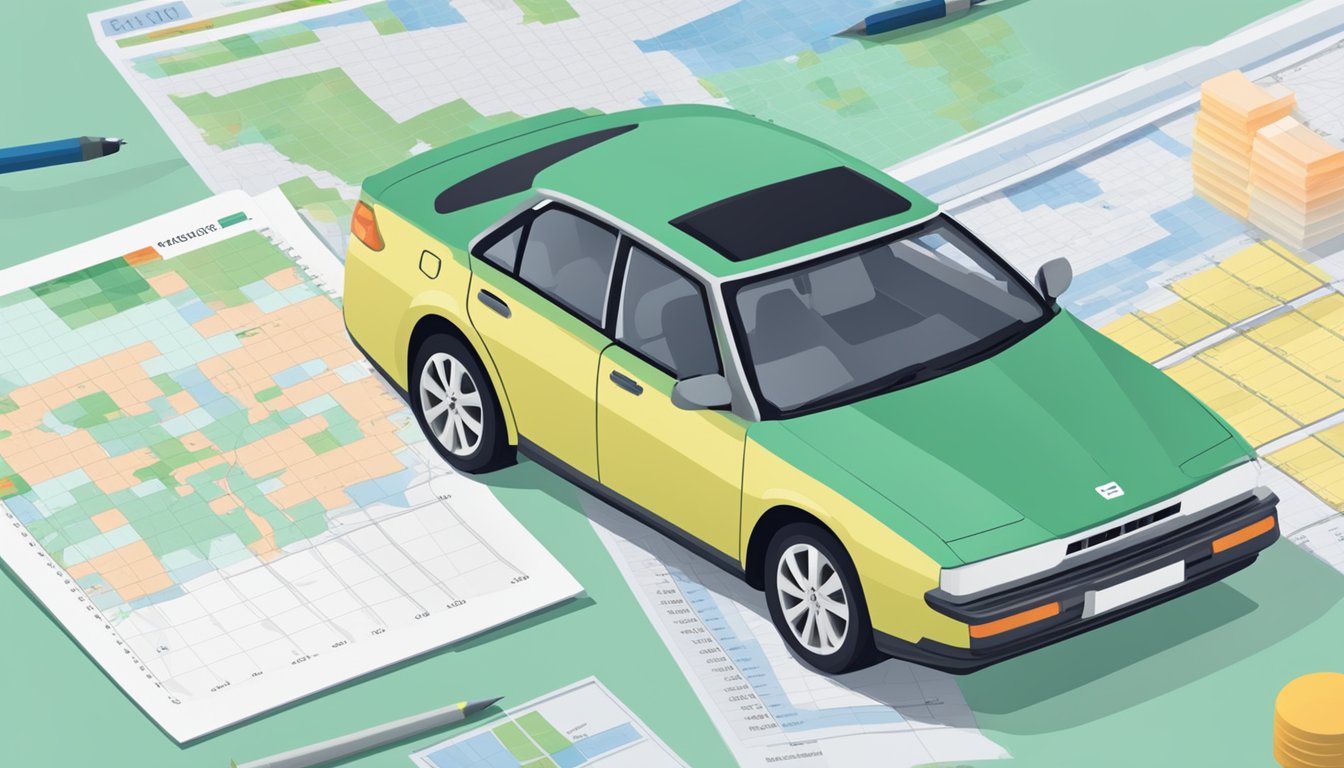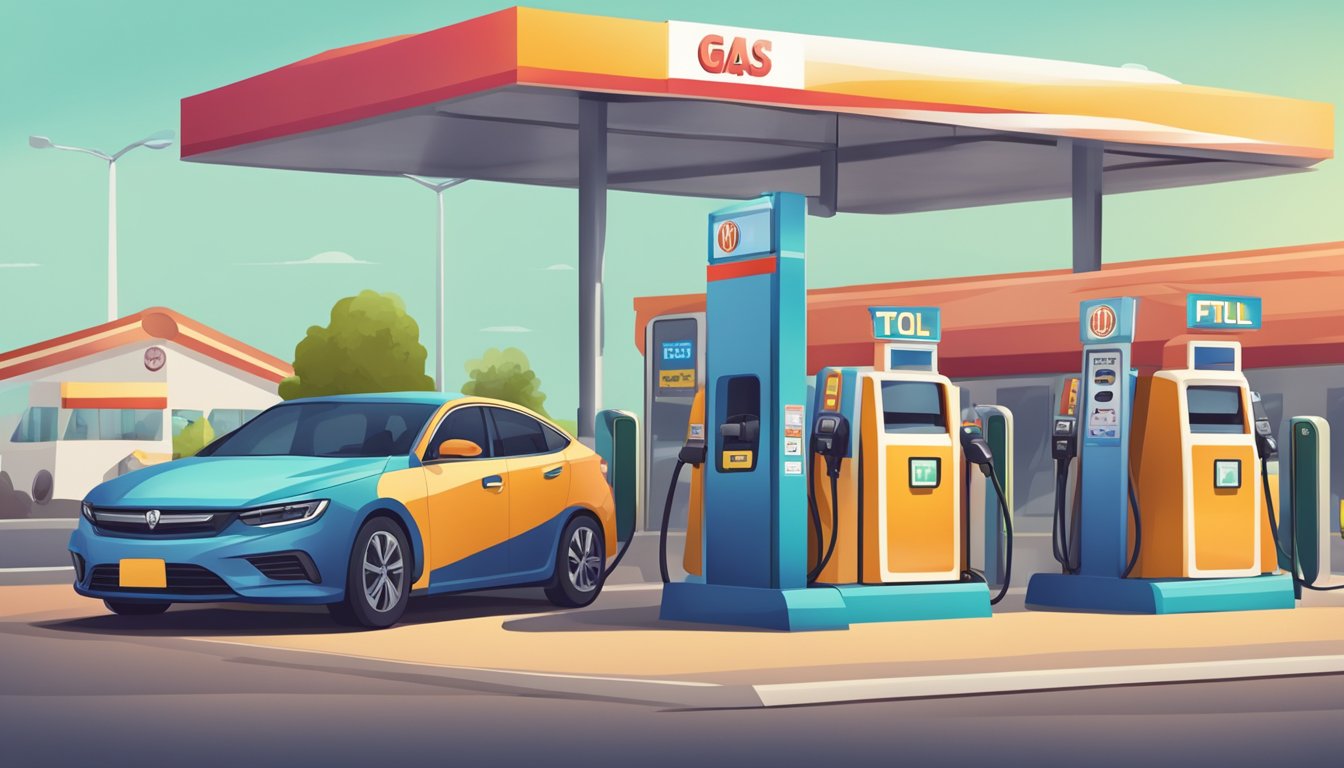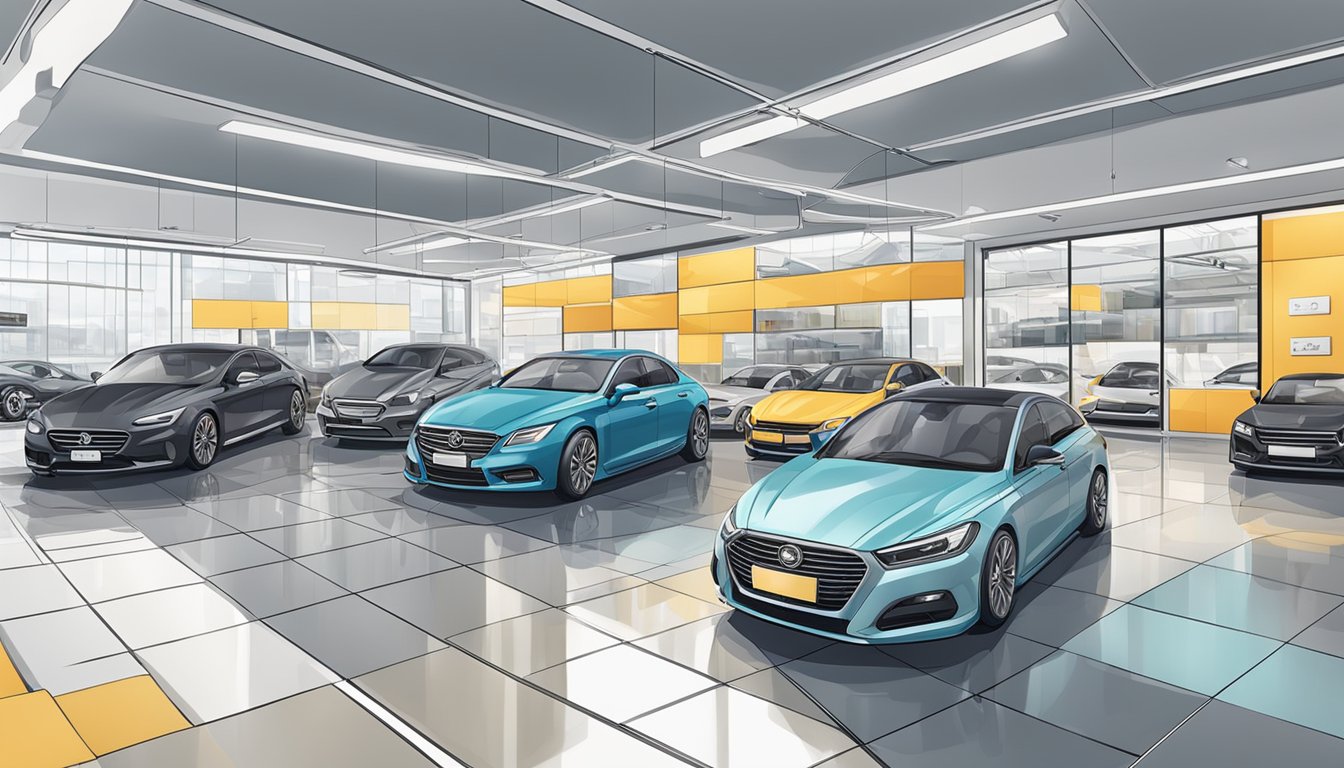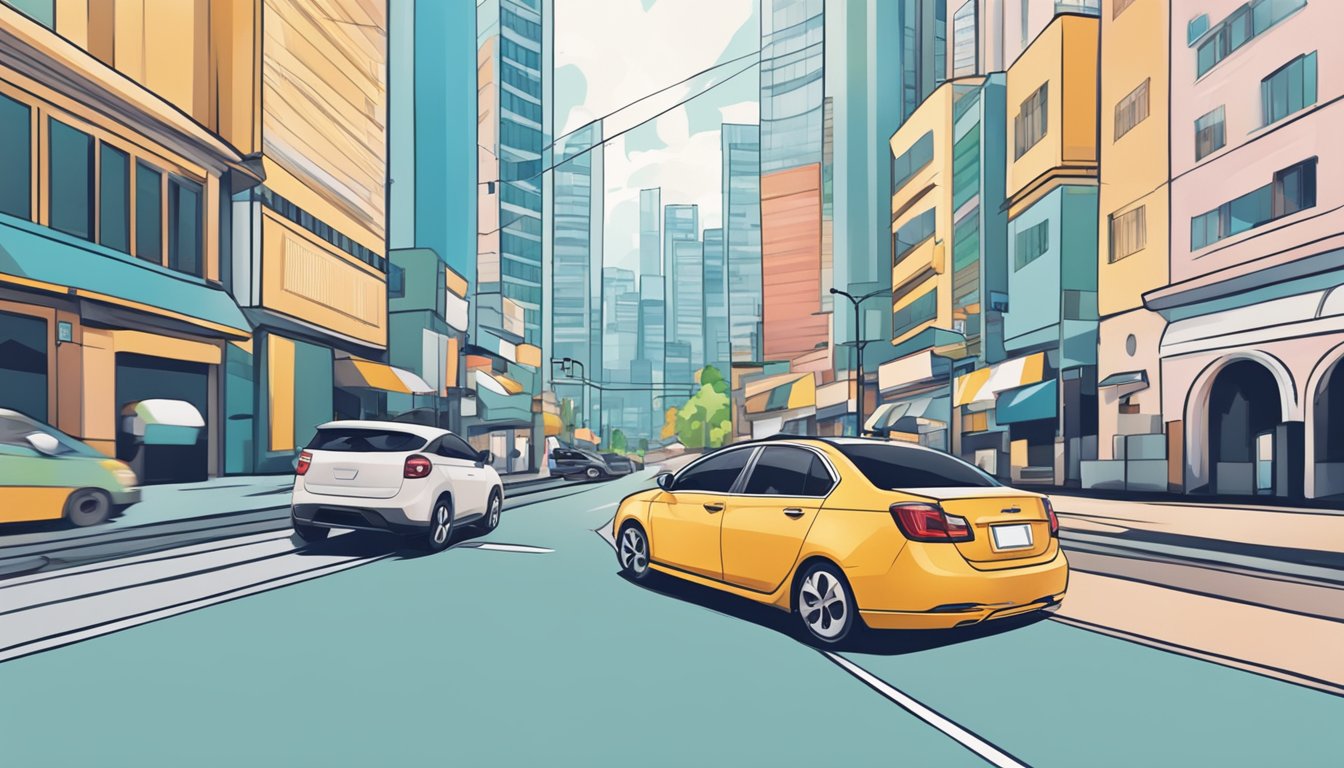Are you thinking of buying a car in Singapore but are unsure of how much salary you need to afford one? It’s no secret that owning a car in Singapore can be a costly affair. Apart from the high cost of the car itself, there are additional expenses such as road tax, insurance, and maintenance that you need to consider. In this article, we’ll explore how much salary you need to afford a car in Singapore.

To start with, it’s important to understand that the cost of owning a car in Singapore varies depending on various factors such as the type of car, its age, and the COE (Certificate of Entitlement) category. Generally, the more expensive the car, the higher the cost of ownership. However, there are ways to reduce the cost of owning a car, such as opting for a smaller and more fuel-efficient car or buying a used car. In the next section, we’ll delve deeper into the costs involved in owning a car in Singapore and how they affect the salary you need.
2 Min Read
Thinking about buying a car but unsure if your salary can handle it? Owning a car in Singapore is a big decision financially. This guide will give you a quick rundown on what to consider to see if it fits your budget.
Before you dive in:
- Cars in Singapore are expensive due to factors like COE (Certificate of Entitlement) and ARF (Additional Registration Fee).
- Consider a smaller, more fuel-efficient car to save on costs.
- You’ll need to factor in monthly payments, insurance, fuel, and maintenance.
Generally:
- Aim to spend no more than 30% of your monthly income on car repayments.
- The Total Debt Servicing Ratio (TDSR) shouldn’t exceed 60% of your income (including other debts).
Ongoing Costs:
- Factor in petrol, road tax, regular maintenance, parking, and car insurance.
Making the call:
- Honestly assess your financial situation. Can you comfortably afford the monthly costs on top of your current expenses?
- Think long-term. How will car ownership affect your savings goals and future lifestyle changes?
Remember: It’s a personal decision. Use this info to see if a car fits your budget and goals.
Understanding Car Ownership Costs in Singapore

If you are considering buying a car in Singapore, it’s important to understand the various costs involved in car ownership. Here is a breakdown of the key costs to consider.
Initial Purchase Price
The initial purchase price of a car in Singapore can be quite high due to the Additional Registration Fee (ARF) and the Certificate of Entitlement (COE) prices. The ARF is a tax imposed on the Open Market Value (OMV) of the car, while the COE is a quota system that allows car owners to have the right to own and use a vehicle on Singapore’s roads for 10 years. The COE prices fluctuate based on demand and supply, and they can be quite high. You can check the latest COE prices on the LTA’s website.
Loan Considerations
If you are planning to take out a loan to finance your car purchase, it’s important to understand the various loan options available to you. You can either take out a car loan or a personal loan. A car loan is specifically designed for car purchases and typically has a lower interest rate than a personal loan. However, you will need to consider the Total Debt Servicing Ratio (TDSR) when applying for a car loan. The TDSR is a measure of your ability to repay the loan and includes all your debt obligations. Your loan repayments should not exceed 60% of your monthly income. If you are unable to meet the TDSR requirements, you may need to consider a personal loan instead.
Insurance Essentials
Car insurance is mandatory in Singapore and it’s important to understand the various insurance options available to you. The two main types of car insurance are Third Party Only (TPO) and Comprehensive. TPO covers damages to third-party vehicles and property, while Comprehensive covers damages to your own vehicle as well as third-party vehicles and property. When choosing an insurance policy, it’s important to consider the level of coverage you need and the cost of the policy. You can compare insurance policies on MoneySmart.
Calculating Your Budget

Buying a car is a significant financial commitment, and it is essential to calculate your budget before taking the plunge. Here are some factors to consider when calculating your budget:
Income and Expenditures
The first step in calculating your budget is to determine your monthly income and expenses. Your income includes your salary, bonuses, and other sources of income. Your expenses include rent, utilities, food, and other bills. Subtract your expenses from your income to determine your disposable income.
The 30% Guideline
A general rule of thumb is to spend no more than 30% of your monthly income on car repayments. This guideline helps ensure that you do not overstretch your finances and can comfortably afford your car repayments. Use this guideline as a starting point when calculating your budget.
Understanding the Total Debt Servicing Ratio
The Total Debt Servicing Ratio (TDSR) is a measure of your ability to service your debt. It takes into account all your debt obligations, including credit card debt, personal loans, and car loans. The TDSR should not exceed 60% of your monthly income.
To calculate your TDSR, add up all your monthly debt repayments and divide it by your monthly income. If your TDSR is above 60%, you may have difficulty getting a car loan.
Tip: Don’t Buy Without Budgeting First!
Buying a car in Singapore is exciting, but don’t get carried away! Before you fall in love with a specific model, factor in all the ongoing costs. This will ensure you can afford your dream car and avoid financial strain.
Ongoing Car Expenses

Once you own a car in Singapore, you will need to consider the ongoing expenses. These expenses will include fuel and road tax, maintenance and servicing, parking and other miscellaneous costs. Let’s look at each of these in more detail.
Fuel and Road Tax
Fuel is a significant expense when it comes to owning a car in Singapore. You will need to factor in the cost of petrol, which can vary depending on the type of car you own and how much you drive. The road tax is also an ongoing expense that you will need to consider. The cost of road tax is based on the engine capacity of your car, so the larger the engine, the higher the road tax.
Maintenance and Servicing
Regular maintenance and servicing are essential to keep your car in good condition. You should budget for routine maintenance, such as oil changes and tyre rotations, as well as unexpected repairs. The cost of servicing and repairs can vary depending on the make and model of your car, so it’s a good idea to research the costs before you buy.
Parking and Other Miscellaneous Costs
Parking is another expense that you will need to consider when you own a car in Singapore. You may need to pay for parking at your workplace or when you go out. There are also other miscellaneous costs to consider, such as car insurance and cleaning. These costs can add up quickly, so it’s important to budget for them.
Car Models and Affordability

Evaluating Car Models
When it comes to buying a car in Singapore, evaluating car models is an important step in determining what you can afford. You should consider factors such as the car’s make and model, age, mileage, and condition. Some car models may be more affordable than others, so it’s important to do your research and compare prices.
For example, the Honda HR-V and Mitsubishi Attrage are two popular car models in Singapore that are known for their affordability. The Honda HR-V is a compact SUV that is fuel-efficient and has a spacious interior, making it a great choice for families. The Mitsubishi Attrage is a subcompact sedan that is also fuel-efficient and has a low price tag, making it a popular choice for budget-conscious buyers.
Resale Value and Depreciation
Another important factor to consider when evaluating car models is resale value and depreciation. Resale value is the amount of money you can expect to get back when you sell your car, while depreciation is the decrease in value of your car over time.
Cars with high resale value and low depreciation rates are generally more affordable in the long run, as you can recoup more of your investment when you sell your car. Some car models that are known for their high resale value and low depreciation rates include the Toyota Corolla Altis and the Honda Civic.
Financing Options

Looking to buy a car in Singapore? You have a few financing options available to you. In this section, we will explore some of the most popular financing options for car ownership in Singapore.
Choosing the Right Car Loan
When it comes to financing a car, a car loan is the most common option. Most banks in Singapore offer car loans, including DBS. Car loans typically have a lower interest rate than personal loans, making them a more affordable option. Before choosing a car loan, it’s important to compare the interest rates and terms of different banks to find the best deal for you.
Personal Loans vs Car Loans
While personal loans can be used to finance a car, they generally have a higher interest rate than car loans. Personal loans are also unsecured, which means you don’t have to put up collateral. However, this means that the interest rate is higher to compensate for the added risk. If you have a good credit score and don’t mind paying a higher interest rate, a personal loan may be a viable option.
Leasing Versus Buying
Leasing a car is another option for those who don’t want to commit to buying a car outright. Leasing a car means you pay a monthly fee to use the car for a set period of time, typically 2-3 years. At the end of the lease term, you can choose to return the car or buy it outright. Leasing a car can be a good option for those who want to drive a new car every few years and don’t want to deal with the hassle of selling a car.
Making the Final Decision

Assessing Your Financial Health
Now that you have all the information you need, it’s time to assess your financial health. Take a close look at your monthly income and expenses to determine whether you can comfortably afford a car. Use the knowledge you’ve gained from your research to calculate the total cost of owning a car in Singapore, including the down payment, monthly instalments, fuel, insurance, and maintenance costs.
Consider how much you’ll need to save each month to cover these expenses and whether you can realistically afford to do so. Be honest with yourself about your current financial situation and whether you’re willing to make the necessary sacrifices to own a car.
Long-Term Considerations
When making a decision about car ownership, it’s important to think about the long-term implications. Owning a car in Singapore is a significant financial commitment that will impact your budget for years to come. Consider how owning a car will affect your ability to save for other important goals, such as retirement or a down payment on a home.
Additionally, think about how your lifestyle may change over the next few years. Will you be starting a family soon? Will you be changing jobs or moving to a new location? These factors can impact your ability to afford a car in the long run.
Frequently Asked Questions
What’s the minimum income required to purchase a vehicle in Singapore?
The minimum income required to purchase a vehicle in Singapore is SGD 1,500 per month. However, this does not guarantee that you will be able to afford a car. The cost of owning a car in Singapore is high, and you will need to consider other factors such as the cost of insurance, petrol, and maintenance.
Can you break down the monthly costs involved in car ownership in Singapore?
The monthly costs involved in car ownership in Singapore can vary depending on factors such as the make and model of the car, the age of the car, and the amount of driving you do. However, on average, you can expect to pay around SGD 1,000 to SGD 1,500 per month for a car in Singapore. This includes the cost of petrol, insurance, maintenance, and other related expenses.
What are the most cost-effective strategies for acquiring a car in Singapore?
One of the most cost-effective strategies for acquiring a car in Singapore is to buy a used car instead of a new one. Used cars are generally cheaper than new cars, and you can save a lot of money by purchasing a car that is a few years old. Another cost-effective strategy is to consider car-sharing services or renting a car instead of owning one.
How substantial should a down payment be for a used car in Singapore?
The down payment for a used car in Singapore can vary depending on the age and condition of the car, as well as the financing options available. However, on average, you can expect to pay around 20% to 30% of the purchase price as a down payment for a used car.
What’s the average vehicle ownership rate among Singaporeans?
The average vehicle ownership rate among Singaporeans is around 12%, which is relatively low compared to other developed countries. This is due to the high cost of owning a car in Singapore.
Could you explain the process of using a car affordability calculator for Singapore?
To use a car affordability calculator for Singapore, you will need to input your monthly income, monthly expenses, and the amount of down payment you can afford. The calculator will then provide you with an estimate of how much you can afford to spend on a car, based on your financial situation. This can be a useful tool when trying to determine whether you can afford to purchase a car in Singapore.
Applying for Loans Just Got Easier with Quick Credit
Do rising expenses leave you feeling strapped? Perhaps you dream of a getaway or the latest tech. Whatever your reason, a personal loan can bridge the gap.
Quick Credit, a licensed Jurong moneylender, offers a simple solution. Our streamlined online application takes mere minutes, freeing you from the hassle of lengthy processes.
Take Control of Your Finances Today
With Quick Credit, a personalized loan is just a click away. Eliminate the stress of unexpected bills and achieve financial peace of mind.
Click here to get started with Quick Credit.
